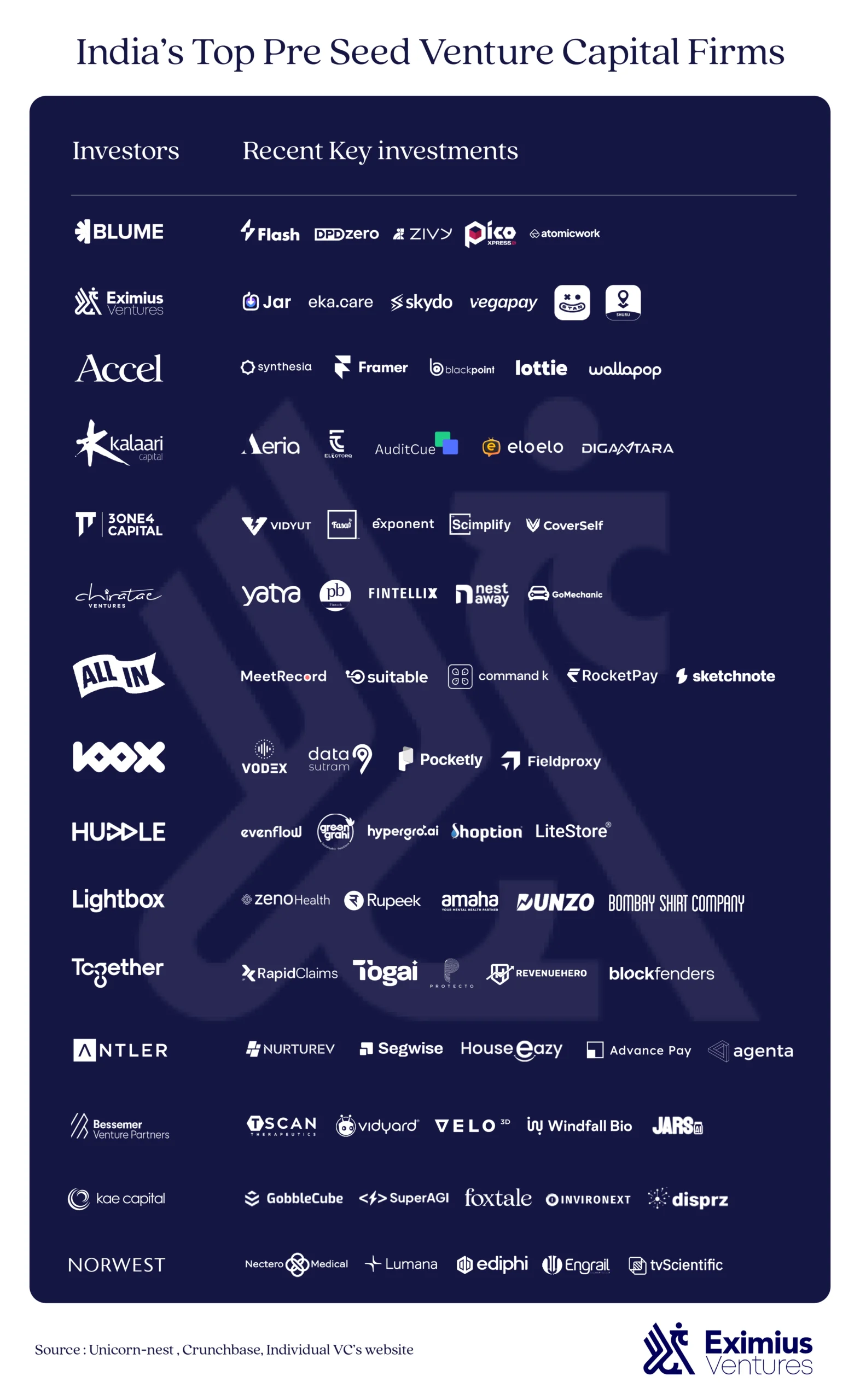Getting funding is often the crucial first step in turning an idea into a viable business. It’s like laying the groundwork for your vision, giving you the fuel to kickstart your plans and make them a reality. Pre-seed funding is really important because it gives you the money you need to start your business. It helps you get things going, like making prototypes and testing out your ideas. But to get this funding, you need to know what investors are looking for and what they need from you. It’s all about understanding their rules and what they want so you can raise the money you need.
Pre-seed funding is the very first money a startup gets, usually before they even get seed funding. It’s like the starting point for new companies to make their products, get feedback from customers, and improve their business plans. To get this funding, startups need to show they have what it takes to grow and make money. Some of the criteria and requirements are:
Investors in the early stages want startups that have a clear plan to solve a big problem or meet a need in the market. Startups need to explain their idea simply, saying what problem they want to solve, how they plan to solve it, and the opportunity they see in the market. Also, investors want to see scalability – which means the potential to grow a lot – showing that the startup can get a big part of the market and make a lot of money.
Even if startups are just starting out and don’t have a finished product or many customers yet, it’s important to show that people are interested in what they’re offering. This could mean doing research in the market, asking customers for feedback, or getting some initial customers or partnerships. When there’s demand for the product or service, it proves that the startup’s idea is good and reduces the risk for investors, which makes them more likely to invest.
When investors look at pre-seed startups, they care about the people behind the idea. Having a team with different skills and experiences, who know a lot about the industry, and have shown they can get things done, makes investors trust the startup more. They also want to see that the founders are committed and passionate about their idea because starting a successful business takes a lot of hard work and determination.
Before investing in a pre-seed startup, investors check out how the business plans to make money and grow. They want to see a business model that can expand quickly without costing too much extra money. This means the startup can make more money without having to spend a lot more. Startups need to explain how they’ll get customers, make money, and become profitable in the long run. This helps investors feel confident that the business can succeed financially.
Timing plays a crucial role when it comes to raising pre-seed funding. While each startup follows its path, some signs show when it’s a good time to ask for pre-seed money:
A startup is only as strong as its team, so it’s crucial to have the right people on board. This means assembling a cohesive founding team with complementary skills and a shared vision for the company. Having a diverse team with expertise in different areas can help startups tackle challenges more effectively and adapt to changing circumstances. Investors look for startups with strong teams because they’re more likely to be able to execute their business plans and navigate the ups and downs of entrepreneurship successfully.
Before startups seek pre-seed funding, they need to test their ideas to see if they work. This can involve creating prototypes or small-scale versions of their product or service and putting them to the test. By doing this, startups can get a better understanding of whether their ideas are feasible and if there’s a potential market for them. This step is crucial because it shows investors that the startup has done its homework and is serious about making its idea a reality. It also reduces the risk for investors since they can see evidence that the idea has the potential to succeed.
While having a great idea is important, investors also want to see that startups have a clear plan for how they’re going to grow their business. This includes identifying potential customer acquisition channels, developing revenue streams, and outlining expansion plans. Startups need to demonstrate that they have thought through the steps they’ll need to take to scale their business and achieve profitability. A well-thought-out growth strategy not only makes the startup more attractive to investors but also provides a roadmap for success as the business evolves.
Understanding pre-seed funding involves teaming up with venture capital (VC) firms that support startups in their early stages. These firms, also called pre-seed VC firms, are vital for giving money, advice, and connections to new businesses.
Pre-seed VC firms mainly invest in startups when they’re just starting. These startups have a lot of potential to grow quickly, but there’s also a big risk. These firms might focus on specific industries or types of businesses they know well. They look for startups with new ideas, business models that can grow fast, and teams that are passionate and ambitious.
The availability of pre-seed funding is instrumental in fostering innovation and entrepreneurship within the startup ecosystem. Pre-seed funds provide crucial early-stage capital to founders, enabling them to transform their ideas into tangible products, validate market demand, and attract subsequent rounds of investment.
Also, pre-seed funding helps make the startup world more diverse. It supports founders from different backgrounds and makes sure everyone has a chance to succeed. By giving money and advice to a mix of founders, pre-seed funds help more people start businesses and come up with new ideas, which helps the economy grow.
Valuable opportunities for startups are offered by pre-seed funding, the fundraising process can be challenging and competitive. Startups may encounter hurdles such as limited access to investor networks, lack of traction or market validation, and uncertainty surrounding valuation and terms.
Also, pre-seed funding helps make the startup world more diverse. It supports founders from different backgrounds and makes sure everyone has a chance to succeed. By giving money and advice to a mix of founders, pre-seed funds help more people start businesses and come up with new ideas, which helps the economy grow.
Pre-seed funding is evolving, influenced by emerging trends and investor preferences. One significant trend is that more funds are now concentrating on specific areas such as biotech, fintech, or green tech. These funds provide extra support to startups in those sectors, making it easier for them to succeed and attracting investors who are interested in those industries.
Furthermore, technology is playing a larger role in how investors decide where to invest their money. Technologies like AI and data analysis help investors identify promising opportunities more quickly and make smarter decisions about where to allocate their funds. This enables them to potentially earn higher returns and have greater confidence in their investment choices.
Another emerging trend is the increasing importance of impact investing. These investments not only aim to generate profits but also seek to make positive contributions to society or the environment. Investors are increasingly interested in supporting startups that are addressing significant challenges while still being profitable. It’s a way for investors to make a difference while also earning returns on their investments.
When startups, pre-seed VC firms, and other investors team up, it creates a cool environment for new businesses to grow. Together, they create jobs, boost the economy, and make new technology and ideas happen. As startups keep doing their thing and making changes, pre-seed funding helps them go from small beginnings to big successes.
Looking ahead, some neat new trends in pre-seed funding could change how startups get support. Whether it’s funds focusing on specific industries or using fancy tech to make decisions, there are lots of new opportunities. By keeping up with these changes, both startups and investors can keep moving forward and making cool stuff happen.
Ultimately pre-seed funding is about more than just money—it’s about believing in new ideas and making them happen. It’s about exploring new things, facing challenges, and making a difference. With determination and pre-seed funding backing them up, startups can go far and change the world.

